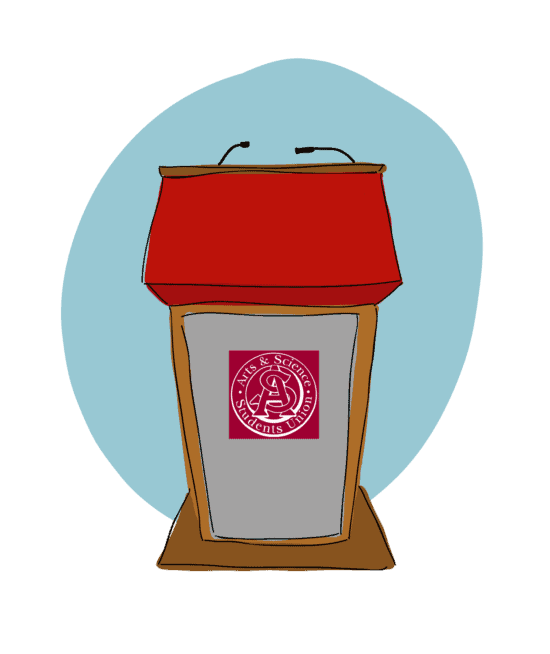In light of recent events at Ramjas College at Delhi University, the University of Saskatchewan Arts and Science Students’ Union has released a statement in support of a student group in Delhi regarding a contentious issue.
The issue is that of free speech and just how this right should work. In recent times, university campuses have seen backlash for allowing certain figures to speak during events — as is the case with  the events at Ramjas College — sometimes bringing out violent protests.
the events at Ramjas College — sometimes bringing out violent protests.
Olya Stepanenko, ASSU president and fifth-year international studies major, outlined what happened.
“From my understanding, sometime in February there was a panel organized by a student group and on the panel was quite a contentious figure — in the university culture and also in India,” Stepanenko said. “Another group of students decided to protest against this panel from speaking. There is a bit of a history with regards to this panel as he had once reported, from my understanding, for a terrorist cell that I believe that had committed an act of terror in the parliament building, from my understanding.”
A large amount of protest surrounded the cancellation of the panel discussion. This protest turned violent and eventually incited a chain of violence as a result. With this in mind, the question of whether or not contentious figures should be allowed to speak publicly, or if action should be taken to stop this, comes to mind. Stepanenko gave her own view on the matter.
“There is absolutely nothing wrong with protesting a speaker that has no business representing or speaking to students, but it’s a whole other matter when you use violence as a deterrent or any form of coercion to silence a person,” Stepanenko said.
This sentiment was echoed in a statement of solidarity issued by the ASSU, which condemned the use of violence to silence free speech. While this statement was officially issued by Stepanenko, had been brought to her attention by a fellow ASSU council member.
This is a very complex issue, since silencing controversial figures into order to prevent possible violence validates that the person shouldn’t speak. On the other hand, the idea that every individual has the right to free speech comes into play and silencing different opinions can harm public dialogue. In relation to this, Stepanenko believes that the security and safety of students is ultimately important, if that is truly what is at stake.
If there are any students who don’t feel represented by the ASSU’s statement or don’t agree with it, they should feel free to bring this up with the ASSU, as they represent the whole College of Arts and Science.
It is impossible for the ASSU to ensure all students agree with a stance they are taking, especially due to the size of the college.
Stepanenko stated that she is of the mindset that the ASSU should empower students to speak their beliefs, rather than speak on their behalf. With the diversity found in the College of Arts and Science, there is a variety of opinions across the board.
To close by addressing the statement put forth by the ASSU, it is not a blanket statement claiming that the entirety of the College of Arts and Science is of one mind on the subject. It is simply a statement in which a student union is supporting another student union. While students may not agree with the sentiment, they can be assured that the ASSU did not ascribe it to them.
—
Jack Thompson / Staff Writer
Graphic: Lesia Karalash / Graphics Editor
Leave a Reply